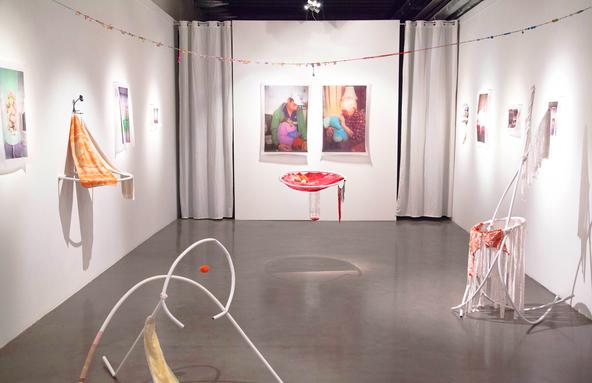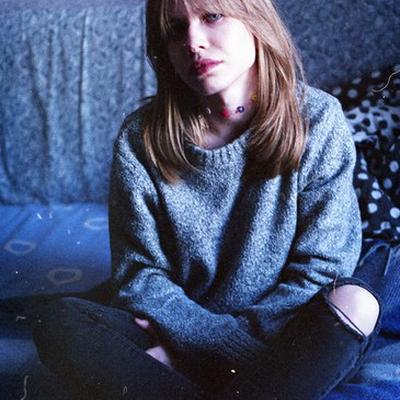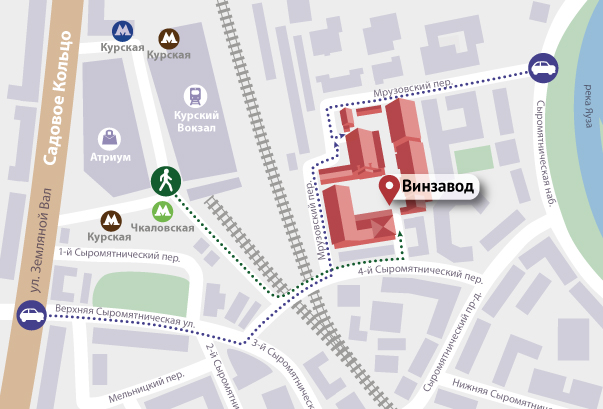Elizabeth Chuhlantseva interacts with the discourse of childhood in the context of deeply personal experiences. The story of growing up in a residential area of Kazan becomes the background reflection of the artist about a whole generation of people born in the 1990-ies in different regions of the country. Forced to develop in the “traditionalist” society, suggesting that children should repeat the fate of their parents, this generation at the same time was devoid of any reference points and role models. In the former Soviet Union disappeared, the old idols and a new one was created. Children of the 1990s were in a situation when the institutions tried to protect them from growing up, erecting a system of bans and “fences”. Going beyond the real and virtual fences, the creation of a new system of values, using artifacts of the past as a visual cliché, form the basis of the author's statements Chuhlantseva. Photos taken on a camera Olimpus, made in the aesthetics of family albums – such is the average Russian family, in a cozy middle-class covers flowered for years gathering dust in the attic, they are proud and shy at the same time.
Lisa shows the everyday life of his homeland, a residential area of Kazan. Old plush toy, crochet lace doilies, faded blanket, dusty artificial flowers – all the artifacts from her childhood and Souvenirs of everyday life. Using these objects she tells the story of its growing up in a society where time has stopped. Frozen children's images in photographs Chuhlantseva like small her today, she is trying to reconcile life a decade ago, which has long been increased.
the Sculptures, inspired by the poems of Korney Chukovsky and named names known to us from childhood fairy-tale characters seem familiar only at first glance. Bizarre chimeras made from the same recognizable pieces of furniture of any Soviet apartment, transformed into a new altar of nostalgia for the past, where born in the 90s have never lived and which I can not remember.
the Finding “new sincerity" in a world where anything really does not change, hurting generation who feels his own helplessness. However, children of the 1990s grew up it was then when he decided to remain forever children.
Kirill Preobrazhensky, curator:
“the Generation born in the 90s of weed sprouted through the ruined wreckage of the Soviet material culture in the information chaos of everyday life, comparable to the wild field. Devoid of genuine historical memory about the events of the bygone era, this generation was forced to restore the phantom memories of the objects have lost not only functional, but also symbolic meaning. The weeds "civilize", absorbing the images, concepts and visual language of the time, which they can touch only through the remainder of his artifacts”
About the artist
Chuhlantseva Elizabeth was born in 1994 in Kazan. He graduated from the University in the direction of the "Romano-Germanic languages", a student of the Rodchenko School (course by Valery Nistratova "Documentary photography"). The main media with which the artist works: photo, video, sculpture, installation. Participated in group exhibitions in Moscow and Saint-Petersburg. Lives and works in Moscow.






Kirill Preobrazhensky
Curator of the project from November 2015 to present
the Generation born in the 90s of weed sprouted through the ruined wreckage of the Soviet material culture in the information chaos of everyday life, comparable to the wild field. Devoid of genuine historical memory about the events of the bygone era, this generation was forced to restore the phantom memories of the objects have lost not only functional, but also symbolic meaning. The weeds "civilize", absorbing the images, concepts and visual language of the time, which they can touch only through the remainder of his artifacts
For press